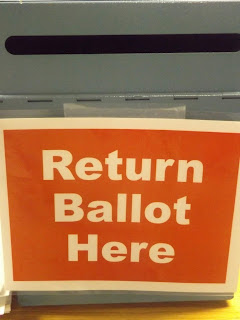By Martin Hawver
Almost eerily quiet; this Thanksgiving week the Statehouse is going to be nearly empty, no interim committees meeting to thrash out possible legislation for the upcoming session, not even freshly elected legislators likely to be wandering the halls wondering where their offices are going to be.
 |
| Martin Hawver, Columnist |
Of course, nobody has won anything until the State Canvass Board meets later this month to certify that those election results are official, that the county officials counted right, that the candidates who were named winners in their local courthouses get the final OK in the Kansas Secretary of State’s office.
But pending that Topeka stamp of approval, there are still going to be 125 members of the Kansas House, and at least 27 of them are new, or at least relatively new (some served earlier terms, quit or were defeated, and came back). Five of those new or relatively new faces are Democrats, 22 are Republicans. A recount out in Hays will determine if Rep. Eber Phelps, D-Hays, or Republican Barbara Wasinger, Hays, wins the vote, which could change the number of new faces.
If Wasinger wins, the ratio stays at the current 85 Republicans, 40 Democrats. If Phelps wins, that makes it 84 Republicans, 41 Democrats. Not a “blue wave” in the House of Representatives.
That eerie quiet in the Statehouse is going to be offset by what will be hot phone lines, e-mails and voice messages between House members who will be campaigning within their party for leadership offices.
Now, everyone knows that the big job, the most powerful job in the Kansas House, is the Speaker. He/she with the help of the House Majority Leader decide what is going to be debated, and when.
That top job appears to be locked up by current Speaker Ron Ryckman, R-Olathe, who doesn’t have any serious opposition for the post within his party.
House Minority Leader Jim Ward, D-Wichita, may see a scrap for his post, largely because it doesn’t appear that he’s been able to increase Democrat numbers in the chamber, which is considered a major responsibility.
Everything else? Well, look for a GOP scrap over the No. 2 job in the chamber, Majority Leader. It’s the Majority Leader, moderate Republican Rep. Don Hineman, R-Dighton, who is facing at least two conservative Republicans who hope to build on the shift to the right of the House GOP caucus.
It’s that under-the-sheets campaigning that will to a large degree determine whether Democrat Gov.-elect (now Senator) Laura Kelly, Topeka, gets much of her budget and legislative agenda approved.
And that, again, is where the leadership of the House becomes a key. That House leadership appoints members to committees which will not only come up with their own bills but hold hearings on Kelly-proposed bills.
Don’t like the Kelly bill? Just have the Majority Leader send it to a committee that will knock it down or amend it. That’s why the power to name Republican members of committees is almost thermonuclear. The House party breakdown means 23-member committees are 16 Republican/7 Democrat; 17-member committees are 12 Republican/5 Democrats and so-on,
So how does a fresh-faced new legislator who doesn’t even know where all the Statehouse bathrooms are, get a flashy committee assignment, say, Appropriations or Tax or Commerce or Federal and State Affairs? How about pledging to vote for a member of leadership, a little tradeoff and the first real use of a freshman’s power.
Democrats? They’ll make their own committee assignments, but not with the leverage that the Republican committee assignments carry.
Wonder what the upcoming session is going to look like? Wait for the leadership races to trickle down to committee assignments.
We’ll see…
Syndicated by Hawver News Company LLC of Topeka; Martin Hawver is the publisher of Hawver's Capitol Report—to learn more about this nonpartisan statewide political news service, visit the website at www.hawvernews.com
 Under the policy, all state employees under the jurisdiction of the governor will be eligible to receive paid parental leave following the birth or adoption of a child, with primary caregivers receiving six weeks and secondary caregivers receiving three weeks. Employees will receive 100 percent of their regular salary during their leave.
Under the policy, all state employees under the jurisdiction of the governor will be eligible to receive paid parental leave following the birth or adoption of a child, with primary caregivers receiving six weeks and secondary caregivers receiving three weeks. Employees will receive 100 percent of their regular salary during their leave.






